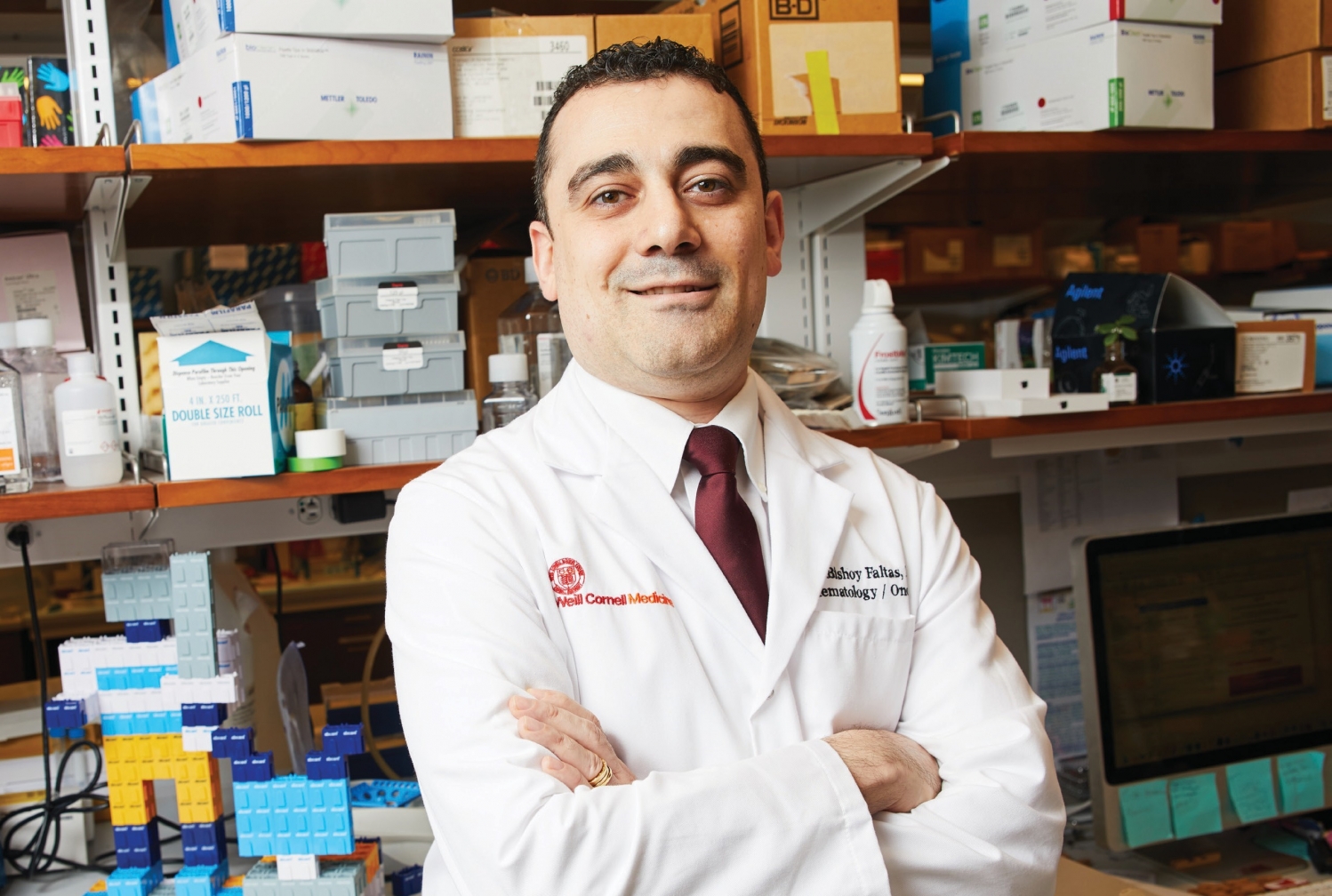
Deep Learning Helps Predict Treatment Response in Muscle-Invasive Bladder Cancer
- There are currently no clinical tools to help physicians predict whether patients with muscle-invasive bladder cancer will respond to neoadjuvant chemotherapy, which could inform decision-making about surgery to remove the bladder.
- The Graph-based Multimodel Late Fusion (GMLF) is a novel deep learning framework that integrates histopathology and cell type data to identify prognostic biomarkers of response.
- In a study using patient data from a large, randomized trial, the GMLF model accurately predicted responses to neoadjuvant chemotherapy among patients with muscle-invasive bladder cancer.
- Deep learning models like GMLF could be used in the future to help individualize cancer care and limit morbidity and mortality from unnecessary treatments.
A new paper from NewYork-Presbyterian oncologists and Weill Cornell Medicine researchers demonstrates that a multimodal deep learning model combining cell information from histology images and gene expression data from RNA sequencing can predict response to neoadjuvant chemotherapy in patients with muscle-invasive bladders cancer.
If we are able to predict which patients are going to have a complete response to neoadjuvant therapy, in the future we might be able to have a bladder-sparing treatment approach.
— Dr. Bishoy Faltas [Chief Research Officer, Englander Institute for Precision Medicine]
The study, which was published in npj Digital Medicine, shows the potential of deep learning models to someday spare patients from systemic toxicity associated with unnecessary treatments, according to Bishoy Faltas, M.D., a genitourinary oncologist at NewYork-Presbyterian and Weill Cornell Medicine, and Fei Wang, Ph.D., a computer scientist at Weill Cornell Medicine, who led the study.
In the case of muscle-invasive bladder cancer, the standard of care is neoadjuvant chemotherapy, with or without immunotherapy, followed by surgery to remove the bladder, a procedure that has significant morbidity and mortality. “If we are able to predict which patients are going to have a complete response to neoadjuvant therapy, in the future we might be able to have a bladder-sparing treatment approach,” says Dr. Faltas.
Currently there aren’t tools available for oncologists to determine if a patient’s response to neoadjuvant therapy will be sufficient to avoid surgery, putting them on a “one-way train” to surgery, Dr. Faltas says. That unmet need is part of why they began examining the potential of using deep learning models to predict response in muscle-invasive bladder cancer.
Deep Learning Model
The study evaluated a novel deep learning model — the Graph-based Multimodal Late Fusion (GMLF) — that integrates histopathology and cell type data from whole-slide images and gene expression profiles from RNA sequencing. The researchers used prospectively collected data from patients enrolled in the SWOG S1314 trial, a large, randomized study evaluating a predictive biomarker for response to neoadjuvant chemotherapy in patients with muscle-invasive bladder cancer, to feed into the deep learning model.
The patient cohort was divided to create a training dataset and a testing dataset, allowing the researchers to train the deep learning model with one set of data and to evaluate it objectively with the other, Dr. Wang says.
Our study demonstrates the potential application of AI methodologies in clinical care, and I think it can definitely help patients in the future.
— Dr. Fei Wang
They were able to show that using multiple data modalities provided better predictive ability than either one or two modalities. The GMLF accurately predicted response to neoadjuvant chemotherapy and identified prognostic biomarkers of response. Spatial intratumoral heterogeneity, an increase in cancer cell count and connective cell count, and a decrease in necrosis cell count were all associated with response to neoadjuvant treatment. Gene alterations in TP63, CCL5, and DCN were also flagged as prognostic for response to neoadjuvant treatment in muscle-invasive bladder cancer.
“Our study demonstrates the potential application of AI methodologies in clinical care, and I think it can definitely help patients in the future,” Dr. Wang says.
Notably, the research team did not include clinical variables that are predictive on their own, such as comorbidities, in the model algorithm. “In some ways, we cleared a higher bar by not including any of that clinical patient information,” Dr. Faltas says.
However, adding clinical variables to the framework in the future could make for an even stronger predictive model and the GMLF framework is well-suited to integrating additional data points, he adds.
Precision Oncology
Studies like these are a key step in ongoing efforts to move toward individualized cancer care, Dr. Faltas says. At NewYork-Presbyterian and Weill Cornell Medicine, clinicians are partnering with computer scientists to build an integrated precision oncology program that includes the use of artificial intelligence, machine learning, circulating tumor DNA, and patient-derived organoids and models to improve patient care. The GMLF framework could someday integrate all these technologies to help make predictions that can individualize cancer treatment.
“The vision is that we build an ecosystem of all these pieces to truly achieve precision oncology,” Dr. Faltas says.
# # #
The above article originally appeared on the NewYork-Presbyterian Advances website on May 12, 2025.
